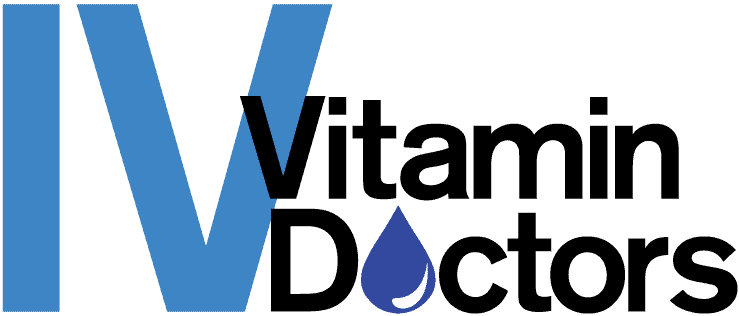What is Coenzyme Q10
Coenzyme Q10 was first identified in 1957 by Frederick Crane and colleagues and is a naturally occurring compound found throughout the human body. Although similar in structure to some vitamins, CoQ10 is technically not a vitamin because it is synthesized in the body, whereas vitamins must be obtained from one’s diet.
Cells use CoQ10 for growth, maintenance, and energy production. Cellular structures called mitochondria utilize CoQ10 to convert food into energy.
Because of its necessity in energy production, CoQ10 is predominantly found in tissues with high energy requirements or metabolic activity like the heart, liver, kidney, and pancreas. However, CoQ10 is synthesized in almost every cell of the body. Normally, the body can maintain CoQ10 levels, but some may require extra supplementation.

Is Coenzyme Q10 an antioxidant?
CoQ10 is a powerful antioxidant. Antioxidants neutralize the negative effects of free radicals that are known to damage cell membranes, alter DNA, and cause cell death. Scientists believe free radicals contribute to the aging process and many health problems.
High levels of free radicals can cause oxidative stress – an imbalance between free radicals and antioxidants – in the body. Free radicals can easily react with other molecules causing large chain chemical reactions in your body. When there is balance, free radicals can help fight off pathogens that cause infections.
As an antioxidant, CoQ10 contributes to overall wellness and has anti-aging benefits.
Do decreased CoQ10 levels cause health problems?
Some studies have shown that Coenzyme Q10 levels decrease as we age, causing an imbalance in free radicals and antioxidants.
Low blood levels of CoQ10 have been observed in patients with:
- congestive heart failure
- atherosclerosis and other cardiovascular diseases
- type 2 diabetes
- neurodegenerative diseases, including Parkinson’s disease
- mitochondrial disease
- high blood pressure
- inflammatory conditions
- preeclampsia
- certain types of cancer like breast cancer and melanoma
Due to the many health problems caused by decreased CoQ10 levels, researchers began to investigate external CoQ10 supplementation as a treatment or manage these conditions.
What are the health benefits of CoQ10?
CoQ10 can be beneficial to patients with a wide range of medical or health concerns, including but not limited to:
Alzheimer’s Disease
Preliminary studies have shown that CoQ10 may slow, but not stop, the progression of Alzheimer’s disease. Additional research is needed to confirm this effect.
Athletic Performance
Because CoQ10 is involved in energy production, researchers believe it might improve performance in high-intensity exercise. However, research in this area has produced mixed results.

Cardiovascular disease (CVD)
Studies have shown that CoQ10 can significantly increase HDL-cholesterol (good cholesterol) levels, even in people already taking statins (cholesterol-lowering drugs). This may help reduce the risk of heart disease and improve overall heart health.
Low CoQ10 levels have also been associated with increased tissue damage to the heart during a heart attack and the brain during a stroke.
Coronary Artery Disease
CoQ10 also lowers inflammatory biomarkers such as C-reactive protein that determine your risk of coronary artery disease.
Heart Failure
CoQ10 has been shown to improve symptoms of congestive heart failure. It has been hailed as “the first new drug to improve heart failure mortality in over a decade.” A study of 420 patients found that CoQ10 reduced deaths from congestive heart failure in study participants by half compared to the control group.
High blood pressure
In clinical studies, it was reported that CoQ10 might reduce blood pressure. In combination with other nutrients, it may aid in recovery from coronary bypass and heart valve surgeries.
Migraines
There is some evidence that CoQ10 may help with migraines. A 2021 review of past studies found that taking Coenzyme Q10 supplements reduced the number of migraine attacks per month, including the frequency and duration. However, research on effectiveness and optimal dosage is limited due to the small sample size.
Mitochondrial disorders
Evidence has shown that Coenzyme Q10 and its synthetic formulations provide therapeutic benefits.
Post Heart Attack
A clinical study demonstrated that patients who received CoQ10 soon after a heart attack had a much lower rate of subsequent cardiac events over the next year.
Statin-related muscle pain
Statin therapy is used to prevent coronary artery disease, heart attack, and stroke. Due to muscle pain and weakness, up to 25% of patients stop treatment within six months. The results of using CoQ10 with statin therapy have been mixed. Previous studies have demonstrated low levels of CoQ10 after statin treatment, which may be associated with statin-induced muscle pain. Other studies have shown no beneficial effect.
Weight Loss
Your body requires CoQ10 to produce energy from carbohydrates and fat in a daily diet. It acts as a coenzyme to adenosine triphosphate (ATP), the cell’s main energy source. Because of the role CoQ10 plays in boosting cellular energy, it is often marketed for weight loss. This effect has only been supported in animal studies.
CoQ10 injections vs oral supplements

CoQ10 is found in meat, fish, nuts, fruits, and vegetables, but there is not enough to significantly increase the levels in your body through diet. It can also be taken as an oral supplement. However, CoQ10 molecules are too large to be absorbed in the normal digestive process, so the absorption is slow and limited.
Instead, CoQ10 can be administered via individual CoQ10 intramuscular injections (shots) or intravenous (IV) drip. Coenzyme Q10 IV infusions (directly into the bloodstream) and intramuscular injections (absorbed quickly into the bloodstream) are much more efficient in their utilization.
What are the benefits of taking Vitamin E and CoQ10?
Vitamin E is involved in numerous metabolic processes in the body and immune system function. It mainly functions as an antioxidant, neutralizing free radicals. However, researchers found that CoQ10 combined with vitamin E was associated with improved fasting blood glucose and reduced insulin resistance, which is important in preventing diabetes.
What are the benefits of taking Vitamin C with CoQ10?
Vitamin C alone increases glutathione, a powerful antioxidant. In laboratory studies, vitamin C in combination with CoQ10 shots showed a synergistic effect in increasing the presence of glutathione.
What are the side effects and drug interactions from CoQ10 injections?
Since CoQ10 is found naturally in the body, injections are usually well-tolerated. Though adverse reactions are reported, they are infrequent and mild. These include a decreased appetite, dizziness, diarrhea, indigestion, and nausea/vomiting.
Coenzyme Q10 has no known serious or moderate interactions with other drugs. However, initial consultation with a physician to discuss personal and family medical history is important to determine if CoQ10 supports your overall healthcare needs. If you are currently on any medications or undergoing treatment for any medical conditions, always consult with your doctor before adding any supplementation.
Why you should Trust IV Vitamin Therapy
IV Vitamin Therapy is a full-service, upscale, and boutique-style medical office and in-home or office visits. We provide in-home and in-office IV therapy calls throughout the greater Los Angeles area and office visits.
We offer a variety of nutrients and health supplements for intravenous injection. Our injectable nutrients are made of high-grade ingredients and are some of the finest in the medical industry. If you choose to receive your nutrients at our medical office, you will be able to rest and relax in our quiet, calm, and modernly designed space. Thanks to our concierge house call service, you can also choose to have your IV vitamin injections therapy sessions in the comfort and privacy of your home or a private office.
CoQ10 injections near me
We are conveniently located in Beverly Hills and can come to your home or office throughout the Los Angeles area. We serve patients near Beverly Hills, Bel Air, West Hollywood, Santa Monica, West Los Angeles, Culver City, Hollywood, Venice, Marina del Rey, Malibu, Manhattan Beach, Redondo Beach, Downtown Los Angeles, Encino, Woodland Hills, Sherman Oaks, Calabasas, Burbank, Glendale, Hidden Hills, Agoura Hills, Northridge, North Hollywood, Topanga, Canoga Park, Reseda, Valley Glen, Chatsworth, West Hills, Winnetka, Universal City, Silverlake, Echo Park, and many more.
Click here or call us at 877-760-3564 today to schedule your first appointment.


